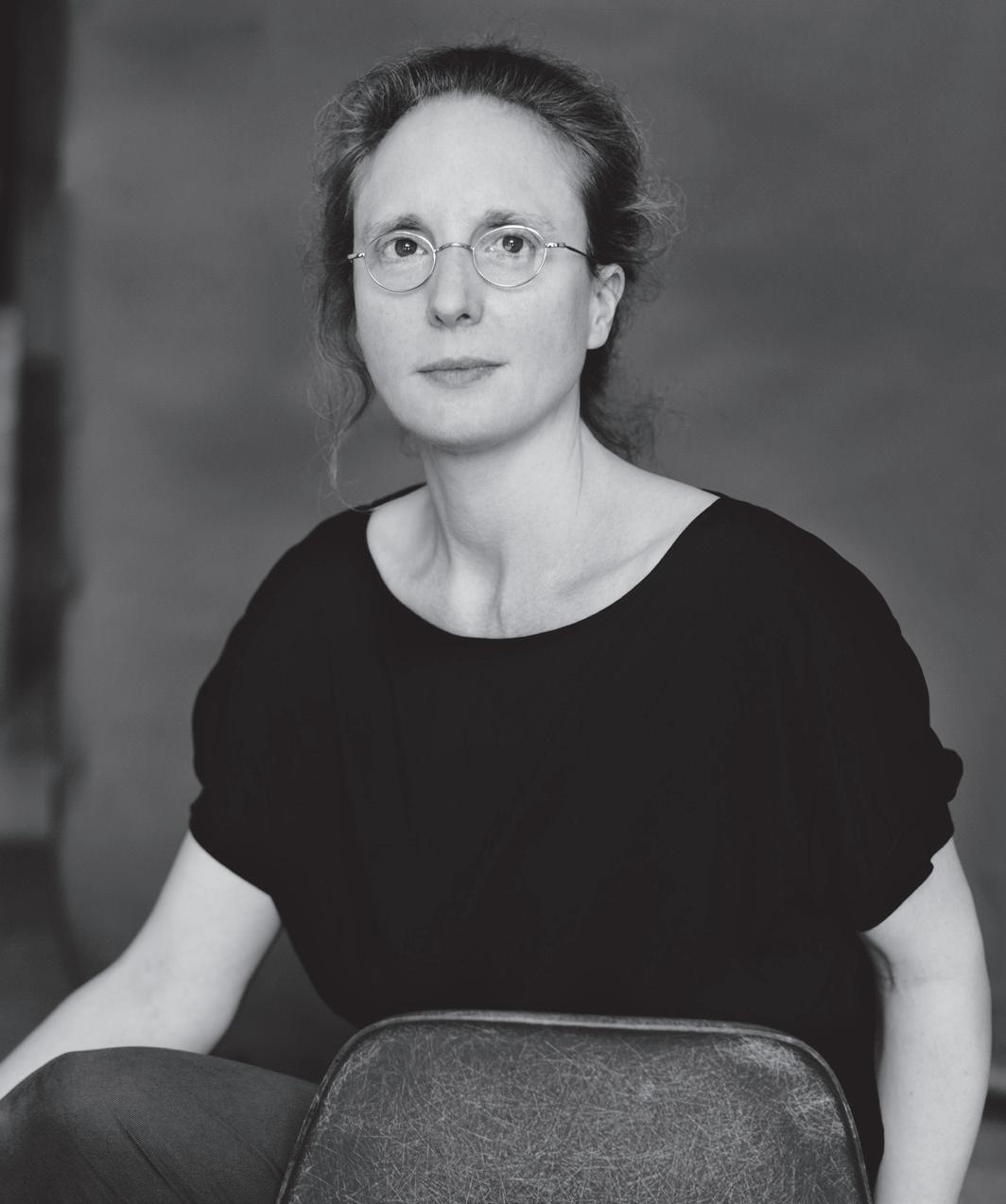SAUNDERS
...of waters making moan
for Accordion solo


...of waters making moan
for Accordion solo

solo
POD PETERS on demand
PROGRAMME NOTE
...of waters making moan is an exploration of a specifc physical gesture and fragment of sound.
In its purest form, this elemental sonic gesture traces the opening and closing of the bellows, drawing out a thread of sound from beneath the surface of silence; fragments, breaths, continuous, neverending, surfacing and disappearing.
Feeling the weight of sound is an integral part of the composing process. The essential materiality of sound is for me of primary importance –being aware of the grit and noise of an instrument, tracing the essence of fragments of colour within a confned and reduced palette of timbres, and exploring the physical gesture which creates a fragment of sound.
It is also a melody, albeit elongated and veiled.
I came across a recording of James Joyce reading one of his early poems; beautiful and simple, almost sung, relishing each onomatopoeic infection. This poem partly accompanied the composing process and is written here to illuminate certain ideas which accompanied the solo’s development:
All day I hear the noise of waters
Making moan,
Sad as the sea-bird is when, going
Forth alone,
He hears the winds cry to the water‘s
Monotone.
The grey winds, the cold winds are blowing
Where I go.
I hear the noise of many waters
Far below.
All day, all night, I hear them fowing
To and fro
James Joyce, Poem XXXV from Chamber Music (1907)
Rebecca Saunders Berlin, March 2013
Final Version 2015
For Teo Anzellotti, with my many thanks for the sessions exploring this palette of sounds
Commissioned by Bayerischer Rundfunk for frst performance by Teodoro Anzellotti at Musica Viva on 26th April 2013
Explanatory Notes:
For button accordion with MI, MII and MIII.
MII requires extra lower octave like MI, and extra upper octave to one octave below MI. Written at sounding pitch. Where there are pitch combinations from registers/stops, the lower octave is notated.
Range MI: Range MII/III:
Clusters: sharp/fat and natural signs show black-note and white-note clusters respectively.
Chromatic cluster, outer tones included.
Wide chromatic cluster in given range, exact tones not important.
1 by 1
Single tones naturally emerge one by one with crescendo and disappear one by one with decresendo.
Quartertones: fat or sharp – half-depress button to lower the tone by ca ¼-tone.
Air
n vib and n.v non vibrato, unless otherwise shown p vib poco vibrato m vib molto vibrato
Part 1, bars 1–198:
Espressivo, breaths, in and out of silence, very fexible tempo, taut sense of line, always in motion, build tension. Each musical phrase ends with a double bar line, and traces a fragmented and an elongated melodic line. Keep taut and tense.
Part 2, bars 199–251:
Furioso! Te rhythmic section chromatic clusters are partly shown graphically and are approximate. Te articulation of staccato sff attack clusters is with a quasi mini-crescendo on each cluster.
Bars 252–273:
Keep extreme tension always!
Duration of each bar determined by the range of each cluster – ca 2½ to 5 seconds for each bar. Te bars marked * are double or triple average lengths. Long continuous crescendi, each time from nothing.
Part 3, bars 274–335:
Dream-like, slow, delicate, fowing, very spacious, fexible tempo, but always in motion – breaths continuous and ongoing to very end. Trace the extended melodic line drawn through the gestures. Te silences are in motion.

Rebecca Saunders (b. 1967) studied with Wolfgang Rihm at the Musikhochschule in Karlsruhe, Germany, and for a doctorate in composition with Nigel Osborne at Edinburgh University. She lives in Berlin. Saunders’ numerous composition prizes include three Royal Philharmonic Society Music Awards, two BASCA British Composer Awards and the 2019 Ernst von Siemens Music Prize. Her works have been performed at festivals including the Huddersfeld Festival, the Berlin Biennale and the Darmstadt International Summer Course. In 2009 she became a member of the Berlin Academy of Arts. Saunders’ works include chroma, for chamber groups distributed throughout the performance space; void, a concerto for percussion duo and orchestra; and Yes, a spatial performance for soprano, 19 soloists and conductor.
Rebecca Saunders (*1967) studierte Komposition bei Wolfgang Rihm an der Musikhochschule Karlsruhe und promovierte an der Edinburgh University bei Nigel Osborne. Sie lebt in Berlin. Saunders wurde für ihr Schaffen vielfach ausgezeichnet, u. a. mit drei Royal Philharmonic Society Music Awards, zwei BASCA British Composer Awards sowie mit dem Ernst von Siemens Musikpreis 2019. Ihre Werke erklangen bei zahlreichen Festivals, wie dem Huddersfeld Festival, der Berliner Biennale und den Darmstädter Ferienkursen für Neue Musik. 2009 wurde sie zum Mitglied der Berliner Akademie der Künste ernannt. Zu ihren Werken zählen chroma für räumlich verteilte Kammergruppen, ein Konzert für Schlagzeugduo und Orchester mit dem Titel void sowie die Raumperformance Yes für Sopran, 19 Solisten und Dirigent.